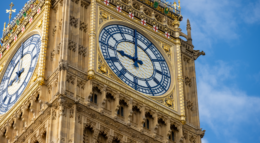
Shooting in the dark - informed consent and Operation Moonshot
Mass testing in schools is rolling out across Britain. Liz Cole discusses the undermining of children's consent and demands for further information and transparency.
While my own scientific education ended abruptly with GCSE Biology, I've worked with medics and scientists all my career. I've always been in awe of the stringent governance that surrounds the research process. Dotting the Is and crossing the Ts is essential to upholding sound research principles and medical ethics. So I've been horribly disillusioned by what I've seen unfold in Liverpool with the mass-testing in schools over recent weeks.
The notion of mass screening in the form of Operation Moonshot had already attracted controversy. A British Medical Journal editorial published in September slammed it as scientifically unsound. Amongst several criticisms, the authors noted that the proposals did not account for harms- including the risk of false positives that could cause 'unnecessary but legally enforced isolation of both cases and contacts with potentially damaging consequences for the UK economy and civil liberties'.
Yet, in early November, Moonshot re-entered the fray, now reimagined as a 'pilot' with the launch of mass testing 'trials' in Liverpool. Again, Professor Allyson Pollock, a co-author of the earlier BMJ editorial raised the alarm in a letter to Liverpool MPs citing a range of concerns including the lack of transparency as to the research design and the diversion of funds from testing symptomatic people.
My worries as a parent, campaigner and member of the public are more prosaic than the critiques of these eminent academics. Nevertheless, my sense of unease about this programme is sky-high. To me, Moonshot epitomises the lack of coherence and basic honesty in the government's entire pandemic response. It also sums up the disregard for considering the harms of any given intervention, and a haphazard 'more haste less speed' approach. For us at UsforThem, the programme also reflects the propensity of the government to ride roughshod over children's lives. We know that children suffer little from the virus, and tend to be asymptomatic if they do test positive. Their role in transmission is limited. Even without mass screening, we are already seeing thousands of healthy children excluded from school on the basis of a single positive test in their 'bubble'. Surely, potential harms as well as benefits should be appropriately evaluated and acknowledged to participants in a screening trial? Yet, this 'pilot' appears to have no research design, no clear goals, and most concerning of all for us, a lack of proper, well-managed process to allow parents to make informed decisions for their children. If it is a true pilot or trial, it should have all these elements – preferably available in the public domain.
As a campaign of time strapped volunteers , UsforThem is battling on several fronts, and so the mass testing pilot in Liverpool was just one of many issues on our radar until last Friday. It hadn't made it to the top of our worry-list – having plenty of competition with masks in classrooms, partial school closures, freezing classrooms and potential exam cancellations. Then, our inbox started blowing up with emails from parents at the Liverpool schools selected as part of this so-called 'pilot'.
We learnt that the army was being deployed to mass screen children in schools. Distraught parents sent us copies of the announcements from their children's schools, and we read them in disbelief. One that quickly went viral told parents that due to the 'unprecedented' situation, there would be no time to record opt-in parental consent for screening. Parents who had objections should opt out in writing, but the implication was that this would be an anti-communitarian act. All the example emails were rushed, and poorly worded. Those that offered opt-in consent made emotional appeals to parents that they should participate and 'trust' schools that this was the right thing to do.
Our team wrote to officials flagging our specific concerns about informed consent for children. Could we see the research protocol, the ethics committee approval, the parent information literature and informed consent forms? We received one response advising us that the school which suggested the consent would be opt-out had made a mistake. But we received no reply about our request for transparency or further information. Nor did we receive any further comment about the psychological pressure we had seen exerted in a wide range of school communications.
We were so troubled by the undermining of informed consent that our team raised the issue with the MHRA (Medicines and Healthcare Products Regulatory Agency). They told us that they had escalated our concerns urgently to NHS Test and Trace. Yet, at the time of writing, we haven't heard a peep from them.
These are serious issues about a research project involving large numbers of children. Proponents of mass screening say that it is a vital tool to help exit lockdown. It is as yet unclear to me how exactly this programme will do that. It is however evident that there are negative consequences to children of being isolated based on a potentially false test result, or excluded from peers and judged for non-participation in screening. It also seems painfully apparent that trust in public health intervention hangs in the balance. In times of crisis, don't we rely more than ever on transparency, governance and even greater commitment to the good practices that protect the vulnerable? Yet these safety nets seem to have been cut away. In another BMJ editorial, Dr Mike Gill, a former regional Director of Public Health, has called the programme in schools 'culpably rushed'.
UsforThem echoes the growing calls to halt this unholy mess of a mass screening pilot until it can be appropriately evaluated and put on a transparent footing. Children have already suffered disproportionately, and this poorly managed research in schools stands to do them more harm than good.















